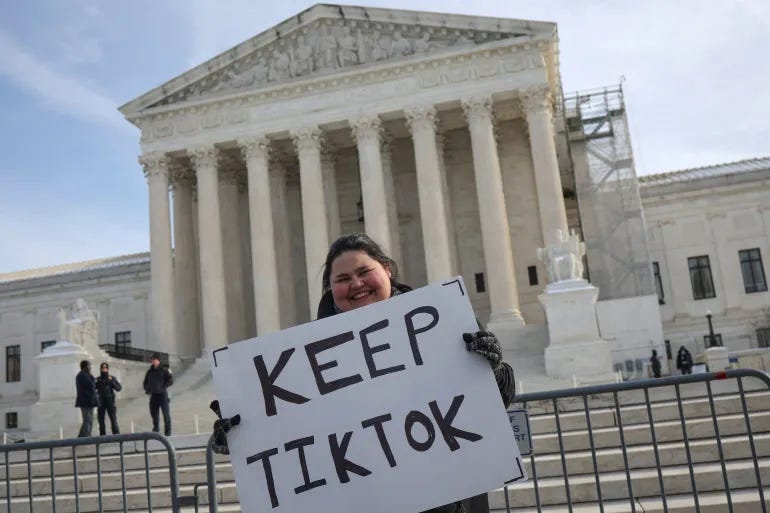TikTok Faces Looming US Ban, But Reprieve Could Be on the Horizon
Washington, D.C. – TikTok, the popular social media app used by 170 million Americans, is set to be banned in the United States on Sunday unless its Chinese parent company, ByteDance, either sells the
As the deadline approaches, US officials have hinted at a possible delay, suggesting that the app may not be banned immediately. While the Biden administration has been working behind the scenes to prevent the shutdown, TikTok’s legal battle is ongoing, with the company challenging the ban on the grounds that it infringes on free speech rights.
A ruling on TikTok’s legal case is still pending, and the outcome could have major implications for how the US addresses other foreign-owned apps, including those from China, such as WeChat, Alipay, and CapCut.
What Happens if the Ban Goes Ahead?
If no resolution is reached by Sunday, TikTok will be removed from US app stores, and US tech companies will be prohibited from hosting or updating the app. Without updates, the app would soon become unusable for existing users. Sources indicate that users who try to access TikTok post-ban will be redirected to a website providing information on the ban and instructions on downloading their personal data.
However, officials close to the Biden administration have indicated that the shutdown may not happen right away. One unnamed source told CNBC this week that Americans should not expect TikTok to be suddenly banned on Sunday.
Additionally, incoming National Security Advisor to President-elect Donald Trump, Mike Waltz, mentioned that the new administration plans to preserve TikTok while also safeguarding users' data. TikTok’s CEO, Shou Chew, is also expected to attend Trump’s inauguration, which signals potential for continued negotiations.
Could the White House Delay the Ban?
Under PAFACA, President Biden can grant a 90-day extension if "significant progress" is made towards finding a new owner for TikTok. Trump has also been considering issuing an executive order to delay the shutdown. Experts believe the situation may not be resolved this weekend.
Anupam Chander, a law professor at Georgetown University, suggested that President-elect Trump could convince Congress to amend the law, negotiate a sale, or exercise other legal options when he takes office. “The TikTok saga may continue beyond this weekend,” Chander said.
Why Are US Lawmakers Concerned About TikTok?
US lawmakers have expressed national security concerns about TikTok, claiming that the app could be used by the Chinese government to spy on American users and spread propaganda. While ByteDance is a private company, Chinese laws allow the government significant influence over its tech industry, leading to fears about potential data misuse.
In an attempt to address these concerns, ByteDance partnered with US tech giant Oracle in 2022 to store TikTok data on American servers, but this move did little to alleviate bipartisan concerns in Congress, which overwhelmingly supported the ban.
Claire Chu, a senior China analyst at Janes, explained that social media apps have a dual purpose: they are tools for surveillance and for gathering public sentiment and personal data. “It’s not just censorship, but also gathering insights, patterns of life, and vulnerabilities,” Chu said.
TikTok’s Legal Battle Against the Ban
TikTok is also engaged in a legal case challenging the ban, which was heard by the Supreme Court on January 10. Although the court has yet to issue a decision, several justices have expressed skepticism regarding TikTok’s claim that the ban violates free speech rights.
Civil rights groups, such as the Electronic Frontier Foundation (EFF), argue that the ban is a distraction from the broader issue of data privacy. EFF Director David Greene pointed out that foreign adversaries can already access Americans' data through data brokers. “The ban or forced sale of one social media app will do virtually nothing to protect Americans’ data privacy from other countries,” Greene said.
As the deadline looms, the fate of TikTok in the US remains uncertain, with political, legal, and security factors all playing into the evolving situation.


